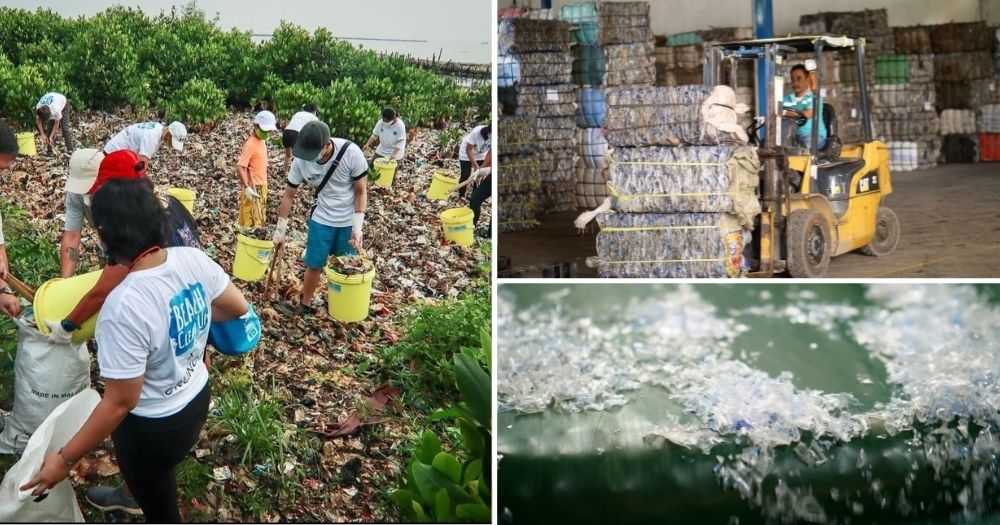Follow us on Telegram for the latest updates: https://t.me/mothershipsg
"In Singapore, you have trash bins everywhere. The people are already aware that they cannot just throw the waste on the street, there is regulation and so on, but for us, it's not yet," said Dian Kurniawati.
Kurniawati is the founder of Tridi Oasis, an Indonesian recycling company with over 100 employees working to solve the country's waste management problem.
"When I was a kid in Jakarta, I would just see people drop waste from their car."
Although public awareness on waste disposal and pollution has improved since then, waste management in Jakarta, the capital of Indonesia, is still not yet efficient especially when it comes to plastics, Kurniawati told Mothership.
For a city that produces between 7,500 and 8,000 tonnes of waste a day, recycling efforts are still hugely reliant on private companies.
In 2021 alone, Tridi Oasis managed to recycle 250 million plastic bottles back to market.
Aside from Polyethylene Terephthalate (PET) bottles, the company is also developing novel ways to recycle other forms of plastic.
Plastic pollution in Indonesia
"It is a daily view to see plastic pollution here in Indonesia. You can see it on the streets, it's just everywhere," said Kurniawati.
Kurniawati has also witnessed the far-reaching extent of plastic pollution first-hand.
Before Tridi Oasis started operating in 2017, Kurniawati founded Beach Clean Up Jakarta, a community of volunteers cleaning up the beaches in the chain of islands offshore Jakarta, known as the Thousand Islands.
The initiative started with just a couple of friends in a paddle club, and the community has since grown into over a thousand volunteers.
Though the islands are uninhabited, the paddlers would encounter a lot of marine trash, mostly plastic, that can be traced back to mainland Jakarta.
Indonesia is the second largest contributor of ocean plastics in the world, according to a 2019 study.
Over the years, Beach Clean Up Jakarta's clean up events collected and diverted around 25 tonnes of plastic waste from the ocean.
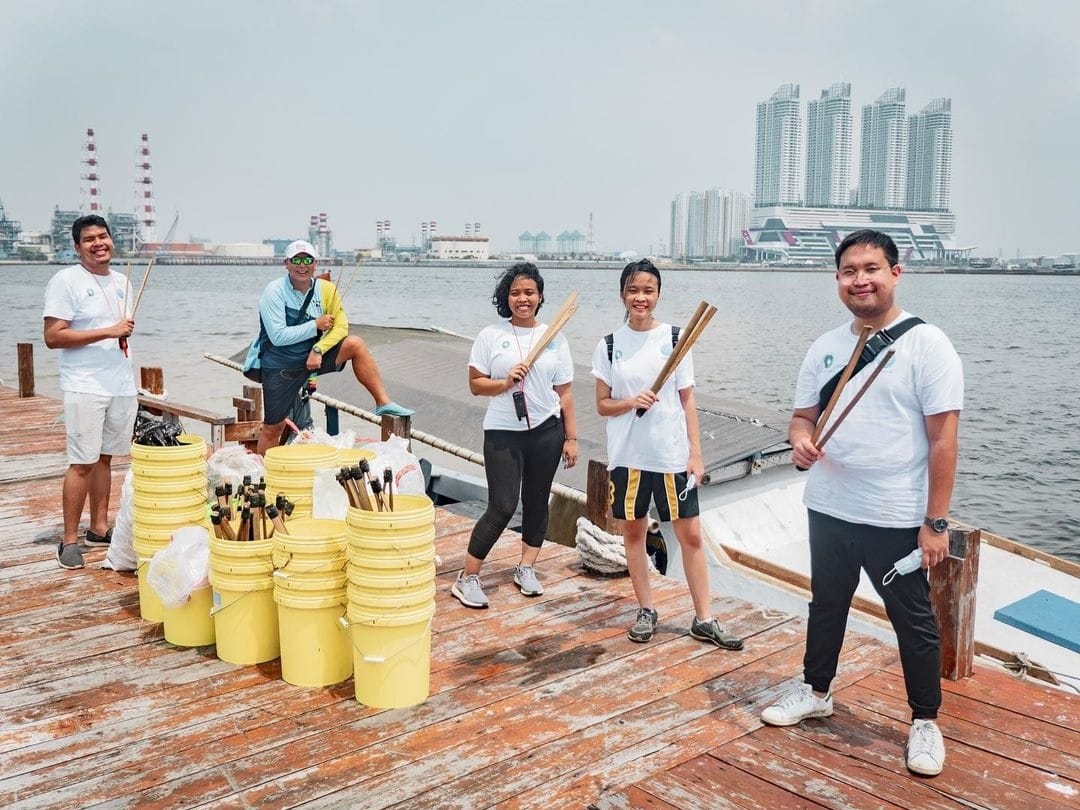 Image by Tridi Oasis.
Image by Tridi Oasis.
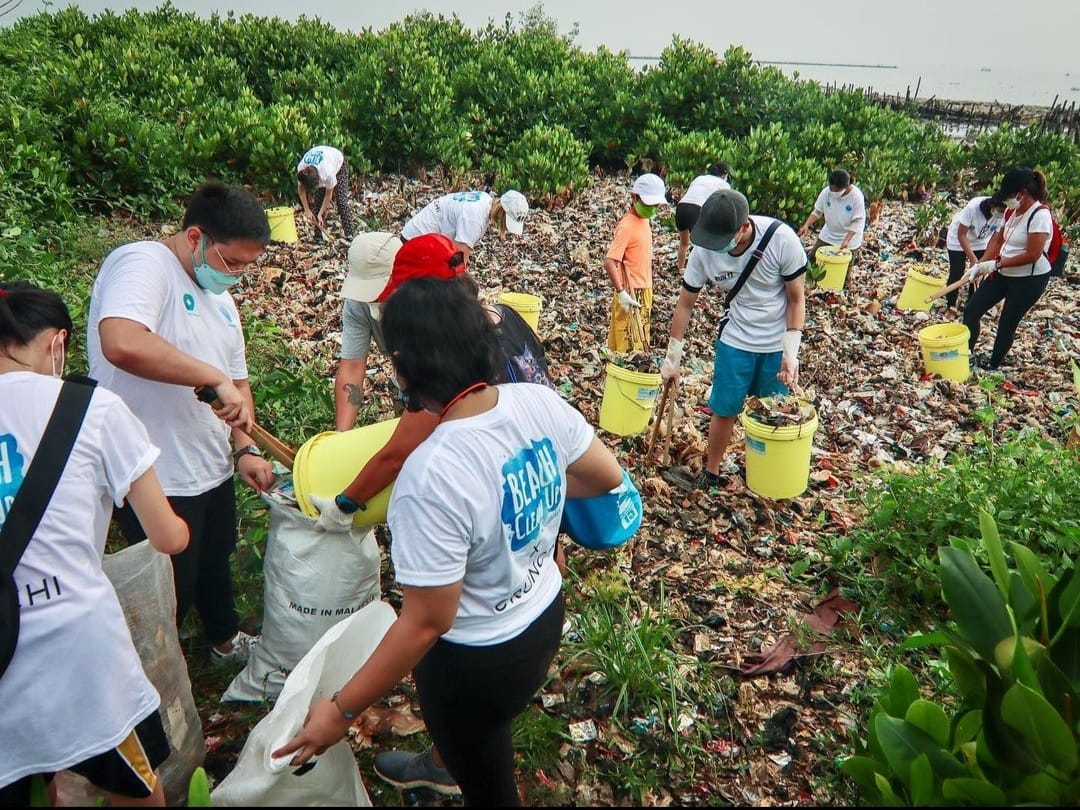 Image by Tridi Oasis.
Image by Tridi Oasis.
Plastic waste is raw material being "in the wrong place"
After Kurniawati grew to understand how big of a problem the city's plastic pollution was, she did some research and realised that the issue didn't lie with the plastic itself, but in its mismanagement.
"How I see it, it's actually a raw material, but it's just in the wrong place. Because you can process it again and [it] becomes raw material, and you can create a lot of new products from [these] plastics."
For Kurniawati, the plastic problem -- its difficulty to decompose, its harm to the environment and availability in large quantities -- presents a business opportunity.
The plastic flakes Tridi Oasis produces with unwanted plastic bottles are sold and exported to be incorporated into products that can be found as far as Europe.
They are turned into packaging and textile material like polyester, which are used in bags, shirts, shoes and carpets.
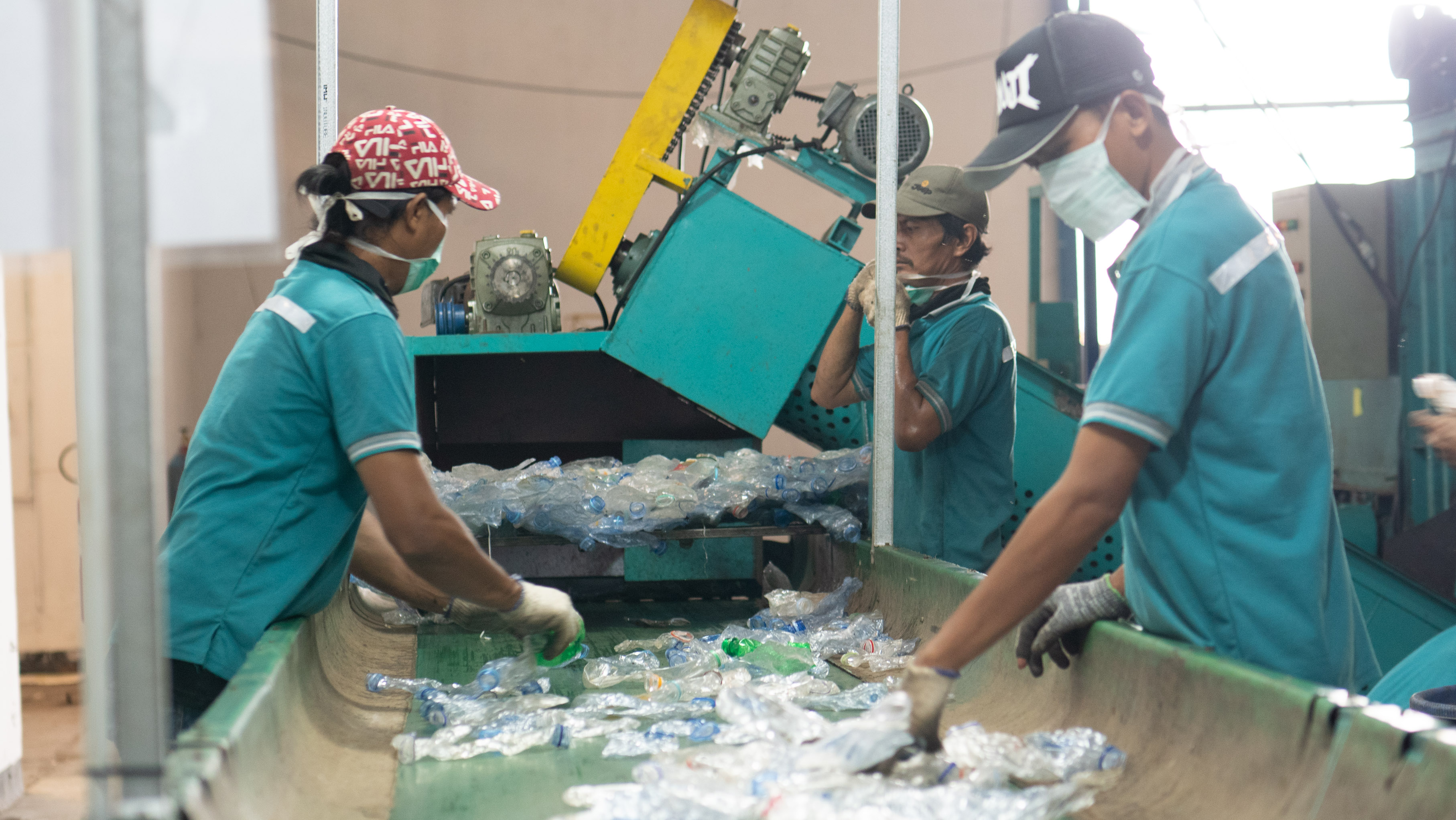 Image by Tridi Oasis.
Image by Tridi Oasis.
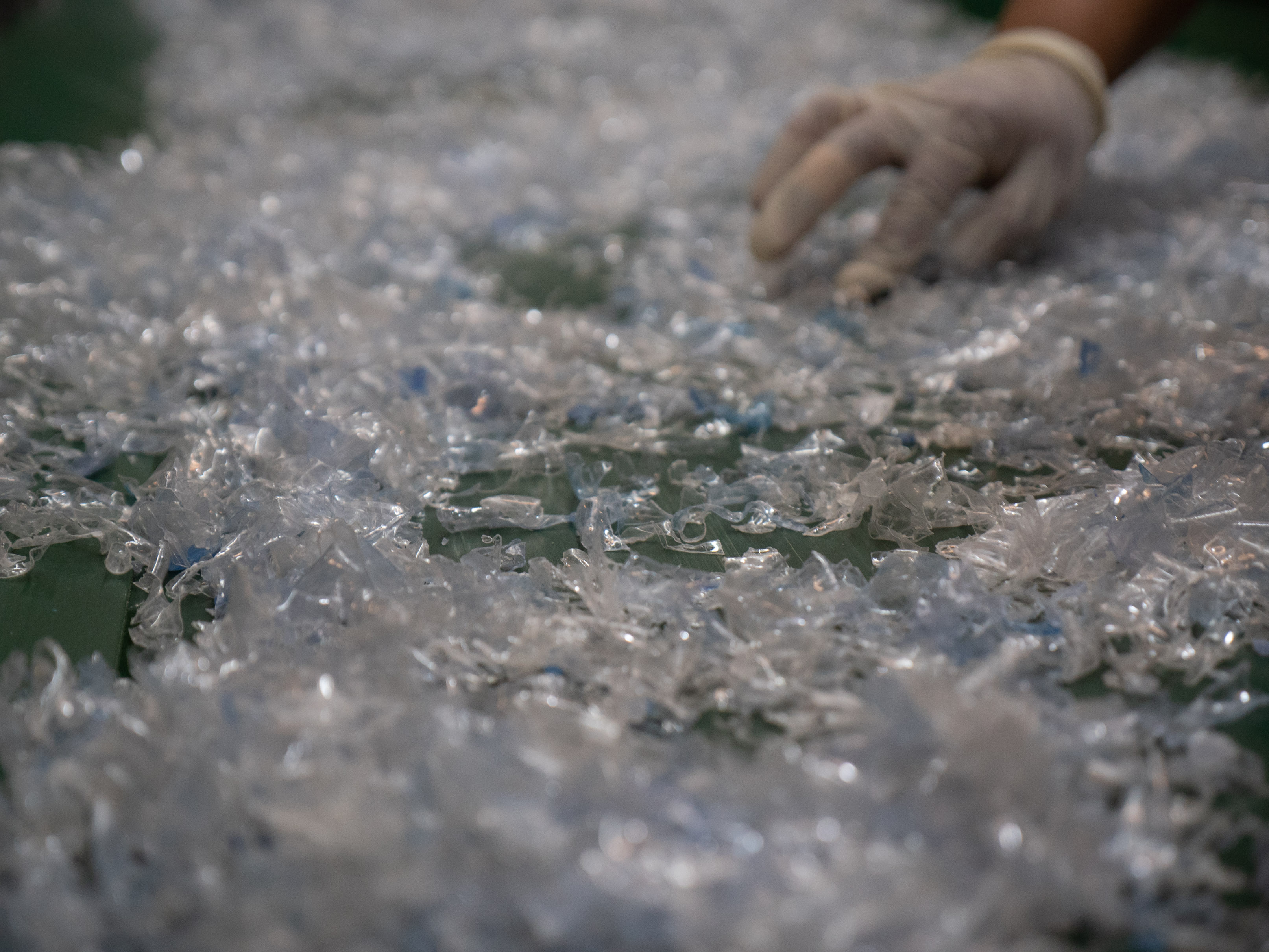 Image by Tridi Oasis.
Image by Tridi Oasis.
Recycling multi-layer plastics
Tridi Oasis is also setting itself apart from other plastic recycling companies by working with a difficult-to-recycle yet common material -- multi-layer plastics.
"Most of the trash that we find during our beach clean ups are multi-layer plastics, those plastic sachets, because it is considered low value, no one is picking it up," said Kurniawati.
In Indonesia, daily items such as coffee, shampoo and cleaning products are often packaged in sachets.
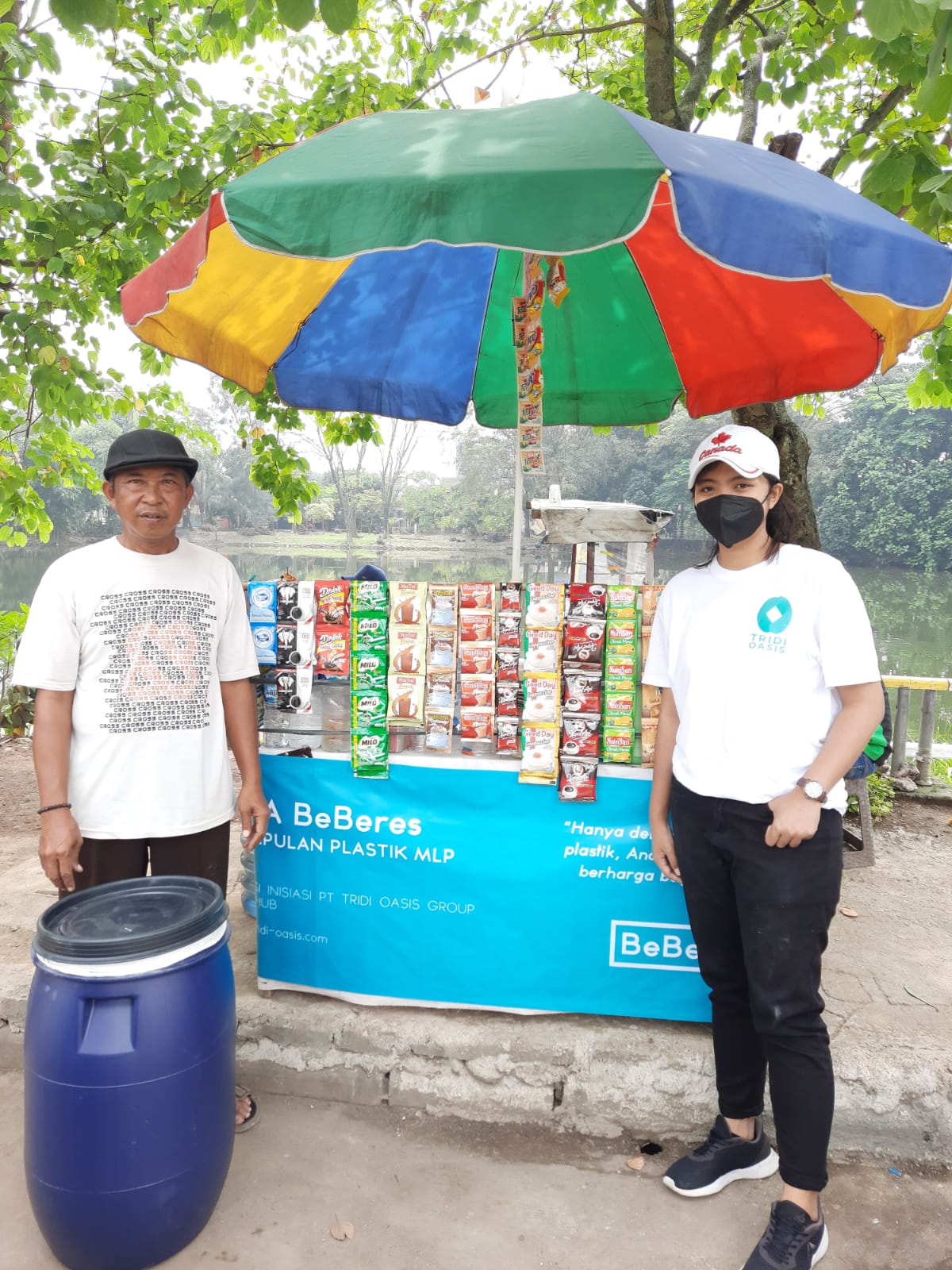 Image by Tridi Oasis.
Image by Tridi Oasis.
Made up of a mixture of plastic types (and sometimes aluminium), multi-plastics often end up in the ocean or landfills as they are typically not recyclable due to their different properties and melting points.
Also known as flexible plastics, they are frequently used in food wrappers like instant noodles and many snacks packaging.
The company has been creating prototypes of possible furniture products made from these multi-layer plastics, such as this table:
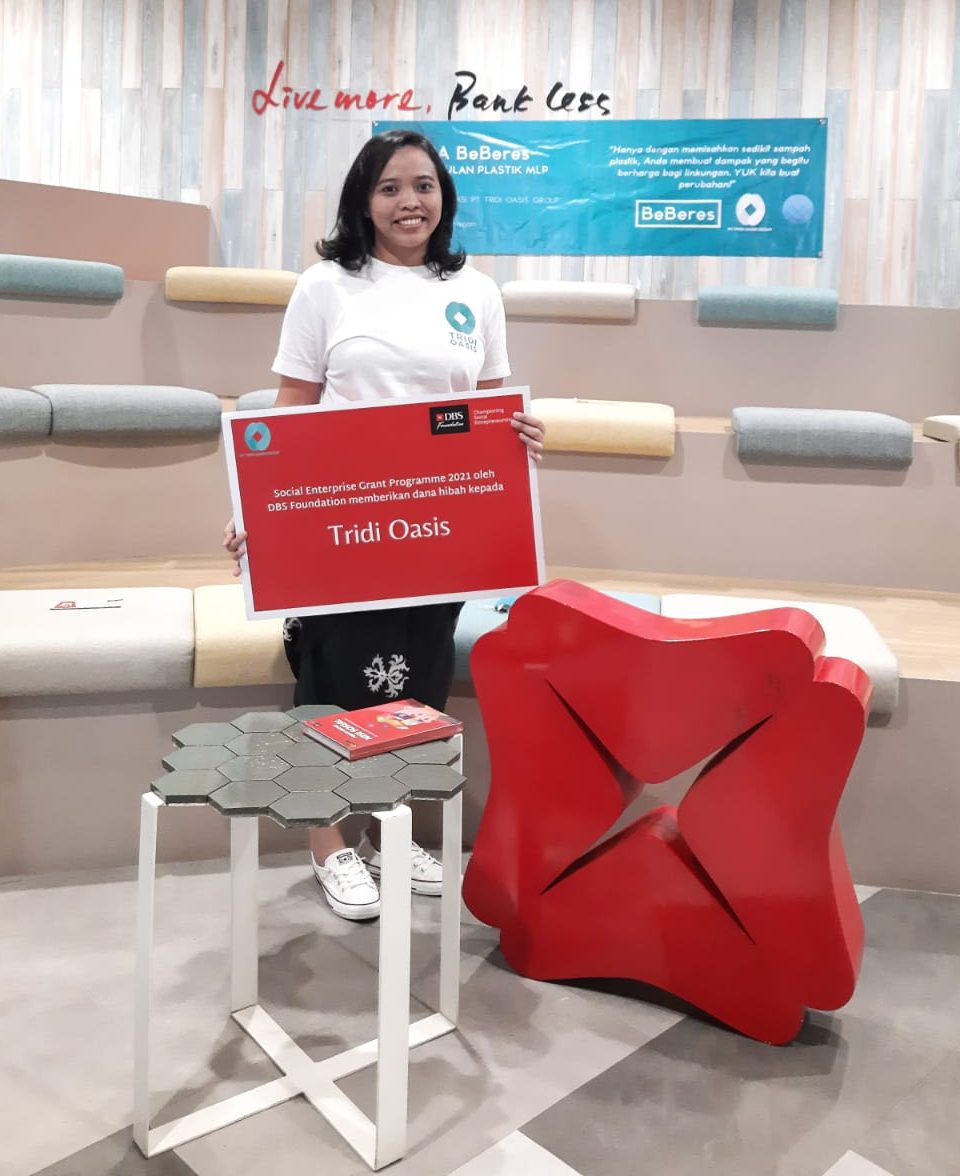 Image by Tridi Oasis.
Image by Tridi Oasis.
They have also been supplying a cement company with multi-layer plastics which acts as fuel for their machines to replace coal.
Creating pallets from multi-layer plastics
This year, Tridi Oasis is working on a feasibility study to recycle multi-layer plastics into warehouse pallets.
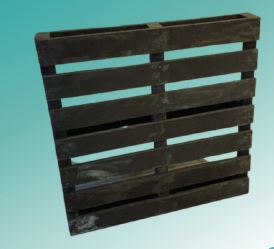 Image by Tridi Oasis.
Image by Tridi Oasis.
Currently in its initial phase, the study is funded by DBS Foundation's Social Enterprise Grant Programme. With this grant, they are able to scale up their social mission to contribute to the circular economy by creating sustainable jobs and upcycle products that perform, look and feel better to customers.
DBS has also provided non-financial help such as mentoring and support in developing the Tridi Oasis brand and doing market assessments, which has enabled them to embark on a partnership to trial their pallet products in the premises of 10 companies such as Shopee, Samudera Logistik and Tanda Jaya.
“Through this grant, we have learned how to make bigger social changes by implementing the right strategies, and have been able to improve in areas needed such as human resources, finance, marketing and branding through DBS’ mentorship,” Kurniawati shared.
Kurniawati is optimistic that the pallets made of plastic waste have potential to be well received among businesses.
The company is now assessing the market sentiment, pricing for such pallets before creating a dedicated business plan for this product.
Quotes edited for clarity.
This article was made possible with the support of DBS Bank.
The 2022 DBS Foundation Social Enterprise Grant Programme is open for applications. Innovative social enterprises with solutions tackling the areas of social/environmental impact or “Zero Food Waste” are welcome to apply from now till May 31, 2022, 2359h.
Discover more about the DBS Foundation Social Enterprise Grant here.
Top photos via Tridi Oasis.
If you like what you read, follow us on Facebook, Instagram, Twitter and Telegram to get the latest updates.
